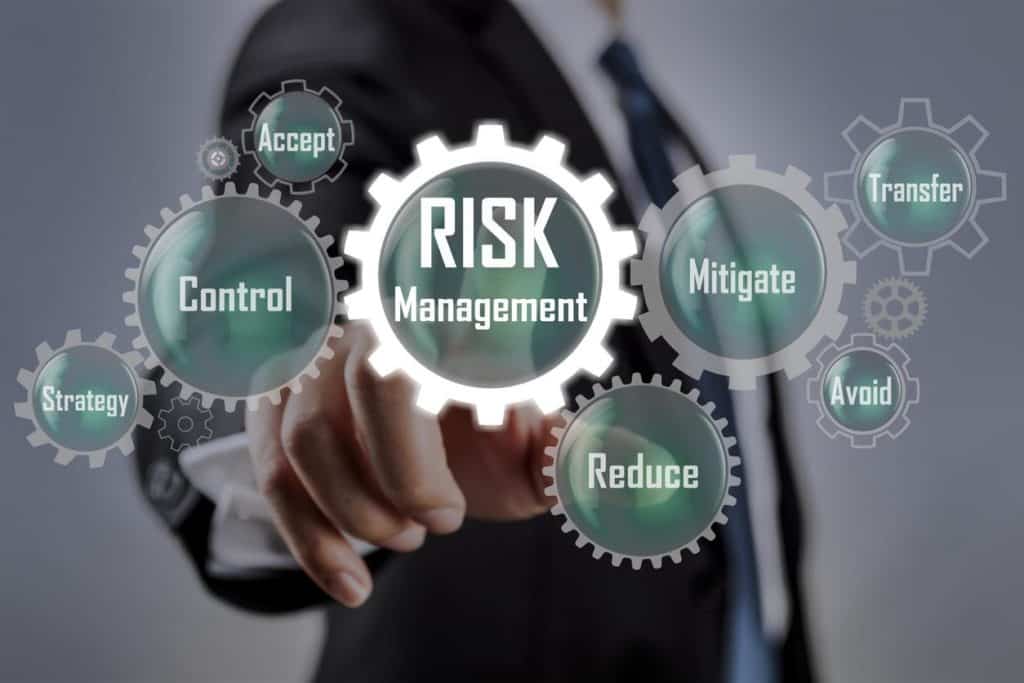If we have learned anything from the current dynamic risk environment in business, we need to have adequate controls and strategies in place to address risk. From the Great Recession to the 2008 bank failures to COVID-19 to the 2023 bank failures of Silicon Valley bank, Silvergate bank, and Signature bank, business owners must be aware of the potential risks that may affect their businesses. After all, advanced awareness of a risky situation helps one to better deal with it.
Importance of Risk Management Strategies
As an innovator, you must know the requirements to grow and scale your business. But, you should pay more attention to the importance of a comprehensive risk management policy. In these uncertain times, it is crucial to review and weigh your business’s systems and processes based on their level of risk and priority. In turn, this ensures the protection of your business’s continuity controls and assets regarding cash collection, revenues, customers, key suppliers, and systems.
Forewarned and Forearmed
Ever heard of forewarned is forearmed? Well, the same applies to risk management in business. A proper risk-management strategy provides a structured approach when addressing risk, despite the industry or business size. Despite evidence that operational risks can take place anytime, like the SVB collapse, many business owners do not learn from the past, leading them to react at the moment. Often, this results in miscalculated solutions that can cause significant harm to the business.
It is worth noting that although we cannot predict the future, history repeats itself, as seen in the recent bank failures. Thus, business owners and innovators must be accountable to ensure business continuity beyond our daily operations.
How to Protect Business Assets and Implement Business Continuity Controls
If you are wondering how to protect your assets and business continuity controls, you should know that it involves applying different risk management strategies to address various risks. In the section below, we will look at ways you can begin to implement business continuity controls to protect your assets.
1. Bank Accounts
Bank accounts are an essential asset in any business (cash is king), companies need to ensure the security of assets and especially cash in the event of any business risk. As such, it is best practice to have separate bank accounts for Accounts receivable, Accounts payable, Money market, and Payroll to protect your business from possible bank failure and also ensure more efficient internal controls. FDIC Insurance coverage can insure up to $250k for each depositor at each banking institution.
Likewise, it is essential AND possible for businesses to be able to route or reroute any funds received from customers or sent to vendors in real-time. Luckily, systems like BILL not only give you control over the routing of cash-in and cash-out, but also automate processes for more effective internal controls and seamless integrations with other technologies. This control also facilitates real-time bank notifications once your business receives or makes payments. BizVisory can empower you with the steps to not only utilize BILL in the most effective ways for cash management, but also help to enhance your tech-stack with our technology partnerships with BILL and other top-tier back-office technology providers.
2. Key Business Systems
One way to protect your business’s vital systems, like ERP, CRM, or Payroll, is to conduct an audit and review them comprehensively against your system vendor’s business continuity and disaster recovery plans. Ensure you obtain relevant audit reports on controls and security, including SOC 1, SOC 2, ISO 27001, ISO 27018 from your key technology providers. These reports provide assurance and comfort around the technology providers controls related to their cloud-based services.
3. Early Alert Notifications
In this internet age, there is so much real-time data on social media and the general web about news on various clients, key banks, vendors, employees, board members, and more. Watching for such news should be part of any business risk management strategy. Thanks to massive technological advancements, feeding such information into a centralized system dashboard is relatively easy. BizVisory has helped other clients create real-time dashboards and feeds in systems like Netsuite and Salesforce and can help you to centralize data feeds in a single dashboard.
4. Review Business Processes
Business owners and management should review key business processes related to revenue, cash collection, vendors, and payroll. As a result, this will help you develop controls or measures required to ascertain sound internal controls and more specifically a business continuity plan.
5. Tech-Stack Integration
Embracing tech-stack integrations gives owners complete visibility of their business’s real-time operational and financial data. As a general rule of thumb, the more informed you are, the better your decisions will be. These integrations also serve as a snapshot of a single source of truth available at any time, which is essential for business and business continuity. Better information helps business leaders to make better decisions to act and not react.
6. Admin Access
All businesses with key systems and key service providers should have a backup staff with the same admin access. This ensures the completion of required tasks even if someone with the required admin access is away, out of town traveling, or not around when disaster strikes. This is important in areas like access to bankers, bank accounts, payroll systems, and key systems support lines.
Get Help in Developing your Risk Management Strategies
As you may have understood from the risk management examples above, managing risk is complicated for businesses. While larger companies usually employ risk management officers to develop such strategies, small businesses or startups may not have the budget to do the same. This is where BizVisory comes into play.
Through a deep expertise in controls, back-office systems, and business processes, BizVisory has a vast experience to support any forward-thinking entrepreneur and management team in developing a practical risk management plan. We have partnered with top-tier solutions to provide our clients with efficient solutions, provisions, setups, and system integrations at discounted rates. Contact us today to learn more about how we can support you and your business.


